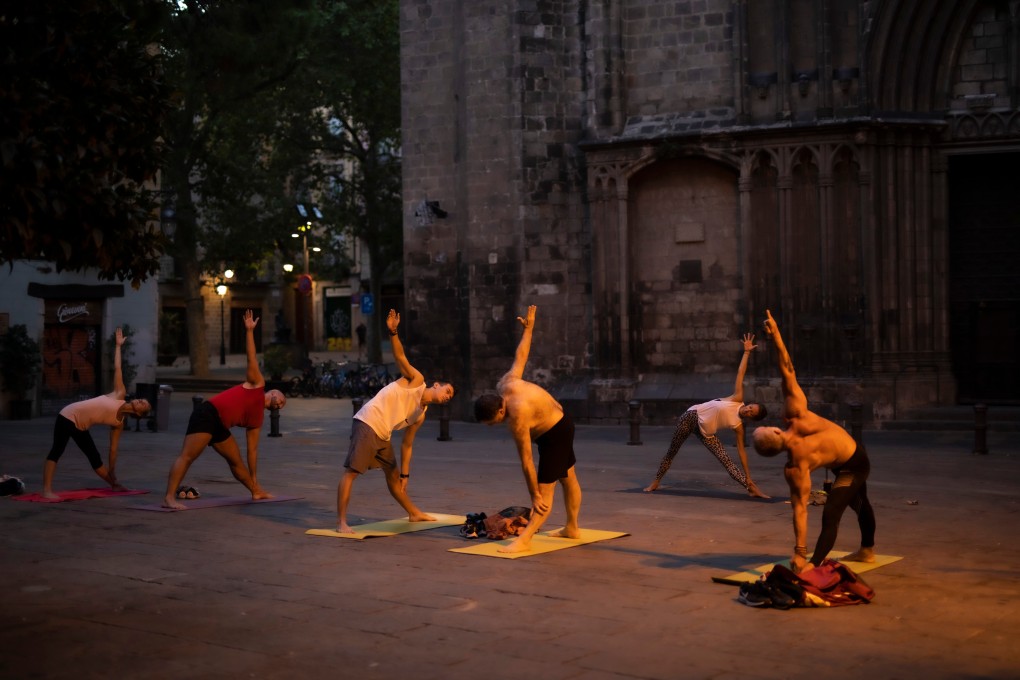Rethinking Barcelona: how the pandemic is reshaping tourism in the Spanish city
- Having suffered the effects of overtourism, the Catalonian capital is now seeing its economy devastated by Covid-19
- But as residents reclaim their city, a more sustainable future is looking possible

The city centre is silent and dark as a small group of yoga practitioners enters the empty alleys of Barcelona’s Gothic Quarter, illuminated only by a few street lamps. After a short walk through a maze of historical residential buildings, they lay their mats in the square facing Santa Maria del Pi, a majestic 15th century Gothic church. Led by their instructor, 39-year-old Andrea Nutini, they practise for an hour enveloped in a surreal atmosphere, interrupted only by the chirping of birds and a few passers-by, hurrying to work.
“On my way to class this morning I stopped in front of the cathedral to admire its rose window,” says Nutini between sips of coffee outside a bar after the session. “There was no one else, it felt like an incredible privilege.”
Following the easing of the Covid-19 lockdown in the spring, Nutini took advantage of the lack of tourists in the Catalonian capital to organise outdoor yoga lessons at some of the city’s most beautiful landmarks. She now holds sessions three times a week.
“For a long time we used to think that only tourists could enjoy these monuments,” she says.

Nutini and her students are among the residents who have begun reclaiming a city long seen as a victim of mass tourism. Like timid shoots of grass pushing through an unused path, the people of Barcelona are venturing back to the Rambla – the iconic walkway through the heart of the city – and Antoni Gaudi’s Park Güell and Sagrada Familia cathedral, finally empty and free of charge. Neighbourhood summer fairs such as the Fiestas de Gràcia – originally conceived for locals who could not afford to go on holiday – have been re-embraced.
